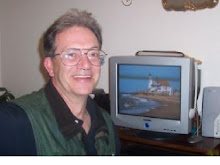Cancer Drugs Make Tumors More Aggressive: Infowars Nightly News
Guest Mike Adams of NaturalNews.com will discuss breakthrough research that suggests chemotherapy can be more dangerous than helpful, as findings show it can multiply the chances of tumors and the presence of cancer in patients.
S. L. Bakerhttp://www.infowars.com/
http://www.prisonplanet.tv/
January 19, 2012When natural health advocates warn against mainstream medicine's arsenal of weapons used to fight cancer, including chemotherapy and radiation, their concerns often revolve around how these therapies can weaken and damage a person's body in numerous ways. But scientists are finding other reasons to question some of these therapies. It turns out that while chemotherapies may kill or shrink tumors in the short term, they may actually be causing malignancies to grow more deadly in the long term.For example, Natural News previously reported:(http://www.naturalnews.com/029042_cancer_cells_chemotherapy.html) that scientists at the University of Alabama at Birmingham (UAB) Comprehensive Cancer Center and UAB Department of Chemistry are currently investigating the very real possibility that dead cancer cells left over after chemotherapy spark cancer to spread to other parts of the body (metastasis). And now comes news that a little-explored specific cell type, the pericyte, found in what is called the microenvironment of a cancerous tumor actually may halt cancer progression and metastasis. And by destroying these cells, some anti-cancer therapies may inadvertently be making cancer more aggressive as well as likely to spread and kill.
http://www.infowars.com/breaking-news-cancer-drugs-make-tumors-more-aggressiv...Cancer Drugs Make Tumors More Aggressive: Infowars Nightly News Guest Mike Adams of NaturalNews.com will discuss breakthrough research that suggests chemotherapy can be more dangerous than helpful, as findings show it can multiply the chances of tumors and the presence of cancer in patients. S. L. B ...





No comments:
Post a Comment